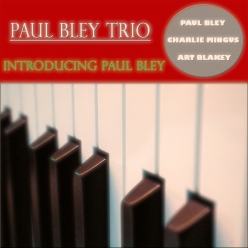Biography
Charles Mingus Jr. (April 22, 1922 – January 5, 1979) was an American jazz double bassist, pianist, composer and bandleader. His compositions retained the hot and soulful feel of hard bop, drawing heavily from black gospel music and blues, while sometimes containing elements of Third Stream, free jazz, and classical music. He once cited Duke Ellington and church as his main influences.
Mingus espoused collective improvisation, similar to the old New Orleans jazz parades, paying particular attention to how each band member interacted with the group as a whole. In creating his bands, he looked not only at the skills of the available musicians, but also their personalities. Many musicians passed through his bands and later went on to impressive careers. He recruited talented and sometimes little-known artists, whom he utilized to assemble unconventional instrumental configurations. As a performer, Mingus was a pioneer in double bass technique, widely recognized as one of the instrument's most proficient players.
Nearly as well known as his ambitious music was Mingus's often fearsome temperament, which earned him the nickname "The Angry Man of Jazz". His refusal to compromise his musical integrity led to many onstage eruptions, exhortations to musicians, and dismissals. Because of his brilliant writing for midsize ensembles, and his catering to and emphasizing the strengths of the musicians in his groups, Mingus is often considered the heir of Duke Ellington, for whom he expressed great admiration and collaborated on the record Money Jungle. Indeed, Dizzy Gillespie had once claimed Mingus reminded him "of a young Duke", citing their shared "organizational genius."
Mingus' compositions continue to be played by contemporary musicians ranging from the repertory bands Mingus Big Band, Mingus Dynasty, and Mingus Orchestra, to the high school students who play the charts and compete in the Charles Mingus High School Competition.
Gunther Schuller has suggested that Mingus should be ranked among the most important American composers, jazz or otherwise. In 1988, a grant from the National Endowment for the Arts made possible the cataloging of Mingus compositions, which were then donated to the Music Division of the New York Public Library for public use. In 1993, The Library of Congress acquired Mingus's collected papers—including scores, sound recordings, correspondence and photos—in what they described as "the most important acquisition of a manuscript collection relating to jazz in the Library's history".

